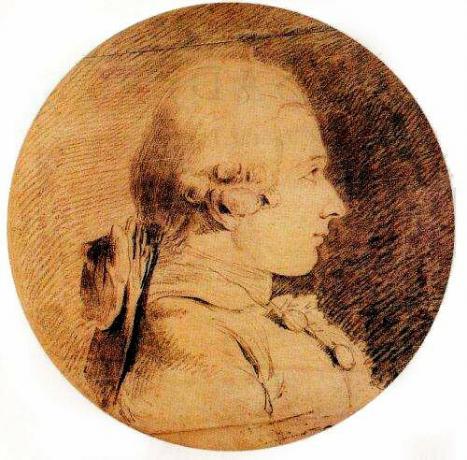Friedrich Wilhelm Nietzsche he was born in Röcken, a city in the then Kingdom of Prussia, in 1844. Descendant of Lutheran pastors, the contemporary thinker devoted himself to the studies of theology since his youth. In his teens, however, he began to find contradictions in Christian writings and, little by little, began to question the religion in which he was indoctrinated.
In the 1860s, Nietzsche completed his studies of classical philology at the University of Leipzig, turning to the investigation of Greek culture and language. During this period, the philosopher was strongly influenced by Professor Friedrich Ritschl and by reading the book The World as Will and Representation, by the German philosopher Arthur Schopenhauer. Despite his training in philology, Nietzsche increasingly deepened his studies in greek philosophy is on Schopenhauer, a fact that made him recognized by posterity as a philosopher.
In 1868 Nietzsche became professor of philology at the University of Basel and in 1872 he published his first book, entitled
The Birth of Tragedy, in which he analyzed the culture and life of the classical Greeks based on the tragedies produced during the period. His studies also pointed to the moral life of those people and the way they viewed religion, bodily desires and desires, and the differentiation between people.The moral
In his writings of the late 1870s and 1880s, the philosopher went on to thoroughly investigate the moral. According to the thinker, the history of the West was faced with a very peculiar phenomenon that influenced all posterity: the advent of christianity. From the moment the Christian religion was institutionalized, a way of living and creating moral values focused on Christian teachings began to exist.
It is important to emphasize that Nietzsche, at no time, criticized Jesus Christ, but rather what they did to Christianity from from the moment the life of Jesus becomes a foundation for a religion, that is, from the apostles Paul, Peter and the foundation gives Catholic church. Nietzsche claimed that Christianity, imperative from the Middle Ages, imposed an inversion of moral values that would culminate in the weakening of the human being for being the denial of the moral impulses that speaks loudest in any animal. Controversial statements such as "Christianity is the revolt of everything that crawls on the ground against what has height”1 condense Nietzsche's thought.
Greek morals, Christian morals and the inversion of moral values
For the philosopher, human life is not dissociated from natural life, which requires abandoning the idea initiated by Socrates that the human being, being rational, is completely different from other animals and from nature. For Nietzsche, this way of looking at life is life-denying, as it takes away from the human being the strength that resides precisely in the impulses and in the natural passions. The ancient Greeks were able to relate to a religion that allowed them to live with natural impulses, which reflected in their way of creating moral values.
Do not stop now... There's more after the advertising ;)
To the ancient greeks, strength and weakness were the constituent factors of men's goodness and badness: the strong was good, and being weak was bad. Having pride and courage were characteristics of men considered good, and being meek and humble were characteristics of men considered bad. This way of valuing reflects the type of Greek society: an aristocratic society. Nietzsche did not advocate the return of an aristocracy, nor did the Greek way of valuing resurface. He only presented, as a didactic resource, the Greek morality to show that the human being was already capable of a strengthening morality.
Christian morality operates, according to the philosopher, a complete inversion of these ancient values: what was considered good (strong, courageous, haughty and rebellious) came to be considered a characteristic of the bad man. What was considered bad (submission, humility and weakness) came to be considered characteristic of the good man. This movement not only reverse the values, as well as changing the term “bad” for “bad”. According to Nietzsche, this inversion of values becomes a rule for contemporary society and is capable, from the moment it became the moral rule for the West, of castrate human nature and weakening people, as it takes away the centrality of life in life itself (natural, physiological and biological) and focuses on an afterlife (the Christian promise of eternal life after death).
The transvaluation of moral values
Nietzsche criticized moral values and then pointed to a solution: a step by step that starts with the genealogy of moral values and goes through the transvaluation. Transvaluation is not an isolated activity and does not end in itself. It is a continuous process that must be practiced uninterruptedly, always aiming at the strengthening of the human being.
To transvalue, according to the philosopher, is, in short, to analyze moral values with a view to maintaining what can be beneficial to human beings and exchanging those harmful values. This would be a possible and viable way of establishing a moral valuation capable of strengthening human beings again and making them capable of exploring the fullness of their power.
1 NIETZSCHE, F. Antichrist and Dithyrambs of Dionysus. Trans. Paulo César de Souza. São Paulo: Companhia das Letras, 2007, p. 51.
by Francisco Porfirio
Graduated in Philosophy


